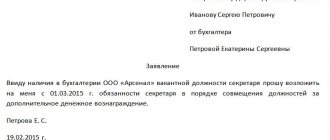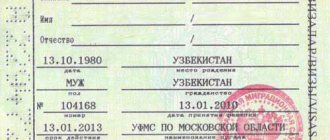Home » Staffing » Is it possible to remove an employee from staff and how to do it
Removal of employees is a procedure in which part of the work team is transferred to work in another company, but actually remains at their jobs . In Russia, this technique has been adopted by many companies from Western experience. Surely you have seen that in large shopping centers, cleaners or cart assemblers dress in overalls with the logo of another organization, and not the one that actually manages the shopping center. This is profitable and financially justified. But before you start removing workers from your staff, keep in mind that since January 2020, the Labor Code has directly prohibited agency work, but has introduced a similar procedure , the nuances of which we will now consider.
Why do you need a withdrawal from the state?
This procedure is used mainly to reduce labor costs , because in some companies personnel costs are unreasonably expensive. And multi-level personnel procedures are often accompanied by a waste of time and money , which inevitably leads to a decrease in efficiency in the organization’s activities.
Personnel outstaffing A technique related to staffing optimization was borrowed from the USA and is called personnel outstaffing.
Benefits of leaving the state:
- the company can fully engage only in its core activities;
- if there is a shortage of basic professions, due to the withdrawal of some workers, it is possible to hire others for the main production, which is impossible for small firms with a simplified taxation system;
- you can hire foreigners if your company does not have the right to hire them;
- taxes and VAT refunds are optimized;
- the company's statistical indicators improve;
- competitiveness increases;
- costs for service services (HR department, accounting) are reduced;
- The volume of work with budget funds and the Federal Tax Service is decreasing.
And the courts with personnel will no longer be within your competence .
Along with all this splendor, outstaffing also has disadvantages :
- not all employees may agree to the transfer; some will prefer to be laid off;
- all withdrawn personnel will need to be re-registered;
- the provider company to which the staff is transferred may turn out to be simply dishonest or illiterate in personnel matters , as a result of which employees will suffer, and you will not only not reduce costs, but also lose money.
What does it mean to withdraw from the staffing table?
Modern people must be fully developed. However, it is impossible to know everything. At the moment, the Internet provides excellent opportunities, where you will find answers to your questions. If you are interested in what it means to withdraw from the staffing table, then you should use an electronic directory. This solution will allow you to get a quick answer that will be accurate and specific. Information is available around the clock.
It’s so good that the Internet has appeared in our lives. You can always find the necessary information, which is important for people of any age. If you urgently need to find out what it is, then simply enter the search system. The answer will be received in just a few seconds, which is very convenient. You will have access to a variety of reference books and dictionaries, which significantly saves time. Thanks to modern opportunities, you don't have to go to the library.
24 Jul 2020 yslygiur 407
Share this post
- Related Posts
- When to see a doctor during pregnancy
- Can Bailiffs Describe Gas Appliances. Bathtubs, Washing Hoods, If the Debtor Is Not the Owner of the Home?
- How to get a grant to study abroad
- Where to get funeral benefits in Pushkino
What is personnel outstaffing?
It looks like this: the company terminates employment contracts with employees of certain positions, while another organization hires them to the same positions. Now these employees will also work at the old place, and the new employer will provide:
- all personnel work;
- calculation, accrual and payment of wages;
- payment of taxes on salaries.
That is, outstaffing is the rental of employees removed from the state.
Attention! Important: interaction between firms during outstaffing must be recorded in a written contract.
Law Club Conference
Inspectors do not care about staff discipline (there was such a term). They don’t care why you have “Advertising Manager – 1 person” on your staff, and there are actually twenty-five of them. They are concerned about a) a correctly concluded TD, b) the timely issuance of an order, c) an entry in the labor record, d) familiarization of workers with labor regulations, e) a payment corresponding to the ShR and not lower than the established minimum, g) etc. according to the list from the topic “Come to us” check came" and the like.
We recommend reading: Contributions for major repairs law
Conclusion for staff
First, all employees need to be explained that they will work in the same places and under the same conditions, they will not lose money, the employer will simply change . A huge advantage for employees is that they will no longer be service personnel, but main employees, because for the provider company their work is the main one .
It is possible to remove staff only by terminating employment contracts here and concluding them with an outstaffing company . If the diplomacy of the director or other representative of the company is enough to persuade employees to resign of their own free will, this is a huge plus - a minimum of costs and time.
Otherwise, it will be necessary to reduce staff according to all the rules.
how to properly downsize
Attention! When downsizing, keep in mind that the question of how to lay off a single mother or a pregnant woman should not be a question, since their status is protected from dismissal during layoffs!
Article 16.1. The presence of an employee of internal affairs bodies at the disposal of internal affairs bodies
Information about changes:
Federal Law No. 156-FZ of July 22, 2010 supplemented this Regulation with Article 16.1
Article 16.1. The presence of an employee of internal affairs bodies at the disposal of internal affairs bodies
An employee of internal affairs bodies may be at the disposal of internal affairs bodies in the following cases:
GUARANTEE:
On the constitutional and legal meaning of the provisions of paragraph “a” of part one of Article 16.1 of the Regulations, see Resolution of the Constitutional Court of the Russian Federation of March 29, 2020 N 8-P
a) when out of state (in case of liquidation or reorganization of an internal affairs body (unit), reduction in the number or staff of employees of an internal affairs agency (unit);
b) upon release from the position being filled due to promotion or dismissal from service;
c) at the end of the suspension of service;
d) when sent for a medical examination or medical examination by a military medical commission;
e) in case of failure to perform more than four months in total within twelve months of official duties due to temporary incapacity (except for cases where the legislation of the Russian Federation provides for longer periods of time for an employee to be on treatment or undergoing treatment in connection with injuries received during the performance of official duties wound, concussion or injury);
f) when sent on a business trip for a period of more than one year, including abroad, and during the period after the end of the business trip specified in part two of this article;
g) in connection with the reinstatement of an internal affairs officer who previously held this position;
h) during the period of being on unused leave for previous years of service upon dismissal from service in the internal affairs bodies;
i) at the end of the period of secondment to government bodies, as well as to organizations.
An employee of internal affairs bodies may be at the disposal of internal affairs bodies in the cases provided for:
a) paragraph “a” of part one of this article - no more than two months;
b) paragraph “b” of part one of this article - during the period necessary for the transfer of cases by position, but not more than one month;
c) paragraph “d” of part one of this article - during the period of undergoing a medical examination or medical examination by a military medical commission, but not more than two months;
d) paragraph “e” of part one of this article - during the period of illness, but not more than one year;
e) paragraphs “c”, “f”, “g” and “i” of part one of this article - during the period of employment, but not more than three months;
f) paragraph “h” of part one of this article - during the period of unused leave, but not more than six months.
The period of being at the disposal of the internal affairs bodies does not include the period of exemption from official duties due to illness and the period of being on regular annual and (or) additional leave for the current year.
Before appointment to another position or termination of service in the internal affairs bodies, an employee assigned to the internal affairs bodies carries out orders, instructions and instructions of the head (manager, commander) of the relevant internal affairs body (unit) or other authorized leader.
An employee assigned to the internal affairs bodies is subject to the working hours established by the relevant internal affairs body (division).
Incentives may be applied to an employee assigned to the internal affairs bodies and disciplinary sanctions may be imposed on him as provided for in these Regulations.
The period that an employee is at the disposal of the internal affairs bodies is counted towards the length of service in the internal affairs bodies, including for the purpose of granting a pension and percentage bonuses for length of service, and against the length of service in a special rank.
During the period of being at the disposal of the internal affairs bodies, the employee retains a monetary allowance in the amount of the salary for the previously filled position, the salary for the assigned special rank, and a percentage bonus for length of service. Employees who were seconded to government bodies of the Russian Federation, when sent to the Ministry of Internal Affairs of the Russian Federation to resolve the issue of further service in the internal affairs bodies, are paid the salary for the last public position of the federal civil service filled by these employees in these bodies, salary according to the assigned special rank and a percentage bonus for length of service. At the same time, employees who were seconded to government bodies of the Russian Federation, the salary for the last government position of the federal civil service, filled by these employees in these bodies, is paid taking into account its increase in the amount established by acts of the President of the Russian Federation or the Government of the Russian Federation.
By decision of the head of the relevant internal affairs body, an employee of the internal affairs body may also be paid a bonus for exemplary performance of official duties, a one-time monetary reward for conscientious performance of official duties based on the results of the calendar year, financial assistance, a monthly bonus to the official salary for work with information constituting a state secret. , a monthly allowance for complexity, intensity and special mode of service, and other payments may be made taking into account the actual duties performed.
The presence of an employee at the disposal of internal affairs bodies is formalized by order of the head of the relevant internal affairs body (unit).
The procedure for enrolling employees of internal affairs bodies at the disposal of internal affairs bodies and the procedure for placing employees of internal affairs bodies at the disposal of internal affairs bodies are established by the Minister of Internal Affairs of the Russian Federation.
Who can be an outstaffer
Previously, they did it simply: a new company was opened on its own territory, often with the same founders and director. The staff was transferred to this company. Now this is directly prohibited by the Labor Code.
Attention! Important: from January 1, 2020, agency work is prohibited by Article 56.1!
This means that you will not be able to establish a small company and employ staff there, because you cannot use the labor of employees of other organizations! And if your company has already applied this practice, urgently bring your activities into compliance with the new Labor Code rules.
With the entry into force of Chapter 53.1 of the Labor Code, outstaffers can be
exclusively accredited recruitment agencies. The Law “On Employment” in Article 18.1 lists which organizations (not individual entrepreneurs, not individuals, but organizations!) have the right to send personnel to work in other companies: these are private labor exchanges or their affiliates. At the same time, they are accredited subject to:
- the size of the authorized capital is not less than one million rubles;
- there are no debts on taxes and contributions to the budget;
- the director of the company has a higher education and work experience in the field of employment for at least 2 years over the last 3 years;
- the director should not be convicted.
At the same time, the accreditation rules are also subject to the law - No. 1165 of October 29, 2015.
Nuances
Attention! Although the Labor Code prohibits agency labor, the Civil Code does not prohibit the conclusion of agreements between companies for the provision of services for a fee.
An example is a case from arbitration practice in case No. A56-20964/03 . The removal of employees from the staff, and the subsequent use of their labor under a contract for the provision of paid services, is quite realistic and does not contradict the laws .
You just need to comply with a mandatory condition: do not indicate in the contract that the labor is borrowed or the staff is rented! This can lead to a fine of up to 50 thousand rubles.
Case law: Precarious employment
However, removal from staff is permissible only for those employees whose positions are subject to reduction. Removing from staff and placing at the disposal of those employees whose positions are not being reduced cannot be considered as being consistent with the intended purpose of staff reduction actions, and therefore should not be considered acceptable. A change in the scope of official duties or powers for a specific position also cannot serve as a sufficient basis for removal from staff.






